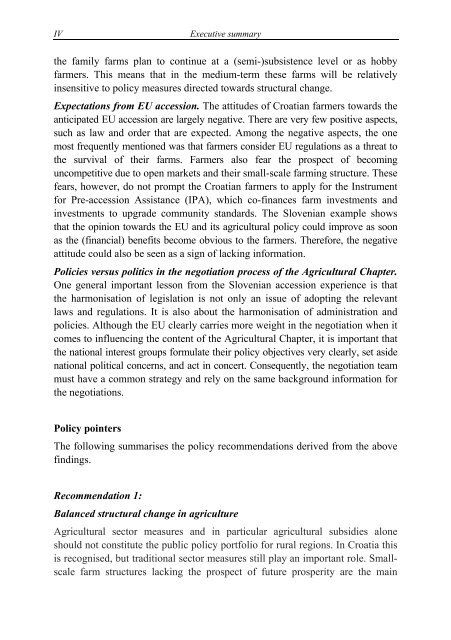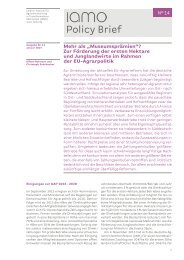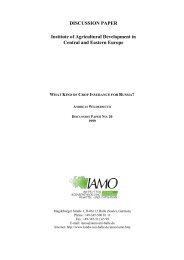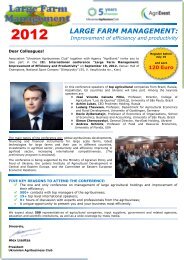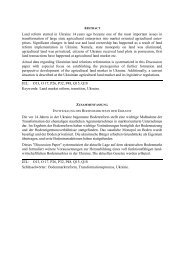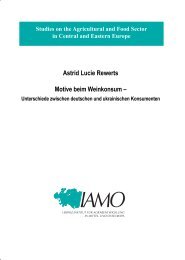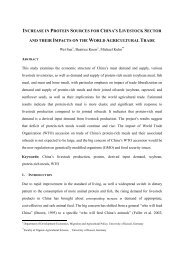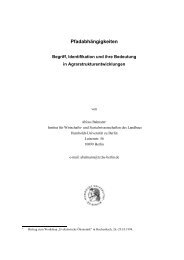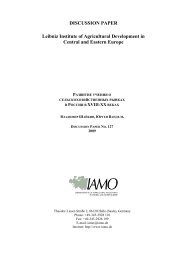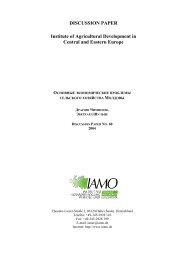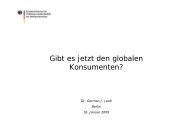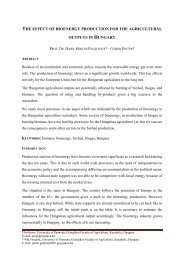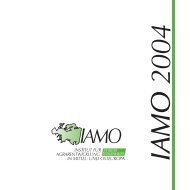downloaded
downloaded
downloaded
You also want an ePaper? Increase the reach of your titles
YUMPU automatically turns print PDFs into web optimized ePapers that Google loves.
IV<br />
Executive summary<br />
the family farms plan to continue at a (semi-)subsistence level or as hobby<br />
farmers. This means that in the medium-term these farms will be relatively<br />
insensitive to policy measures directed towards structural change.<br />
Expectations from EU accession. The attitudes of Croatian farmers towards the<br />
anticipated EU accession are largely negative. There are very few positive aspects,<br />
such as law and order that are expected. Among the negative aspects, the one<br />
most frequently mentioned was that farmers consider EU regulations as a threat to<br />
the survival of their farms. Farmers also fear the prospect of becoming<br />
uncompetitive due to open markets and their small-scale farming structure. These<br />
fears, however, do not prompt the Croatian farmers to apply for the Instrument<br />
for Pre-accession Assistance (IPA), which co-finances farm investments and<br />
investments to upgrade community standards. The Slovenian example shows<br />
that the opinion towards the EU and its agricultural policy could improve as soon<br />
as the (financial) benefits become obvious to the farmers. Therefore, the negative<br />
attitude could also be seen as a sign of lacking information.<br />
Policies versus politics in the negotiation process of the Agricultural Chapter.<br />
One general important lesson from the Slovenian accession experience is that<br />
the harmonisation of legislation is not only an issue of adopting the relevant<br />
laws and regulations. It is also about the harmonisation of administration and<br />
policies. Although the EU clearly carries more weight in the negotiation when it<br />
comes to influencing the content of the Agricultural Chapter, it is important that<br />
the national interest groups formulate their policy objectives very clearly, set aside<br />
national political concerns, and act in concert. Consequently, the negotiation team<br />
must have a common strategy and rely on the same background information for<br />
the negotiations.<br />
Policy pointers<br />
The following summarises the policy recommendations derived from the above<br />
findings.<br />
Recommendation 1:<br />
Balanced structural change in agriculture<br />
Agricultural sector measures and in particular agricultural subsidies alone<br />
should not constitute the public policy portfolio for rural regions. In Croatia this<br />
is recognised, but traditional sector measures still play an important role. Smallscale<br />
farm structures lacking the prospect of future prosperity are the main


